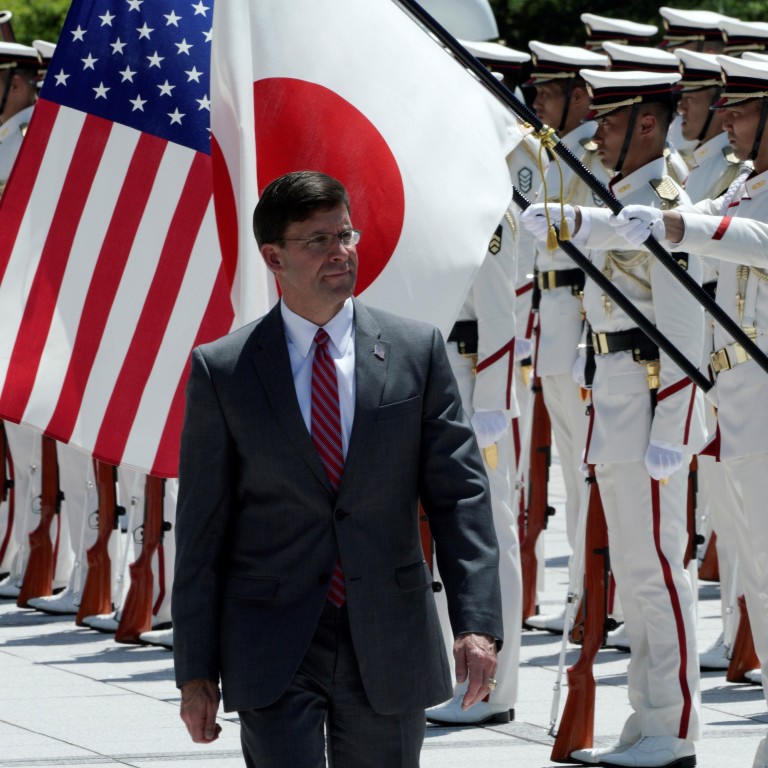
US to Japan: join Strait of Hormuz coalition to counter Iran threat
- Japanese counterpart said government would think carefully about what role Tokyo can play in guaranteeing passage of ships in the Middle East
- Esper also said China is ignoring values such as the international rule of law, freedom of navigation and respect for the sovereignty of other nations
“I think it’s something that the Japanese should strongly consider. I’ll be discussing this with them,” he said.
Japan won’t send troops to Middle East as part of US coalition against Iran
Esper, who is on his first overseas trip since taking office last month, raised the issue in the meeting with Iwaya on Wednesday, according to a Japanese government source. He did not bring it up with Abe, Japanese chief cabinet secretary Yoshihide Suga told a press conference.
In the meeting with Abe at the premier’s office, Esper lambasted China for destabilising the Indo-Pacific region, saying “their military aggression and calculated strategy of predatory economics violates the international rules-based order that we are trying to uphold”.
His comments on China came a day after the United States designated the country as a currency manipulator, escalating their row that has played out through tit-for-tat tariffs.
I think it’s something that the Japanese should strongly consider. I’ll be discussing this with them
Abe said that the Japan-US security alliance has “never been stronger,” a sentiment Esper echoed, calling it “ironclad” and crucial to a free and open Indo-Pacific region.
In his meeting later in the day with Iwaya, Esper said China is ignoring values such as the international rule of law, freedom of navigation and respect for the sovereignty of other nations.
Instead, China prefers “to coerce its neighbours into activities designed for Beijing’s benefit,” he said.
Seoul has suggested it may pull out of the bilateral General Security of Military Information Agreement, or GSOMIA, in response to Tokyo’s tightening of export controls on some materials crucial to the South Korean technology industry.
Pompeo vows US will guarantee passage through Strait of Hormuz
The pact, signed in November 2016, allows the neighbours to share sensitive information regarding North Korea, which has launched what are believed to be short-range ballistic missiles four times in less than two weeks. A deadline to decide whether to renew it for another year comes later this month.
Esper, a Gulf war veteran and former executive at defence contractor Raytheon, became Pentagon chief on July 23, filling a seven-month void left by the resignation of his predecessor Jim Mattis.
He is on a tour of the Asia-Pacific region including Australia, New Zealand, Mongolia and South Korea. On Friday, he is slated to meet with South Korean Defence Minister Jeong Kyeong-doo in Seoul.

